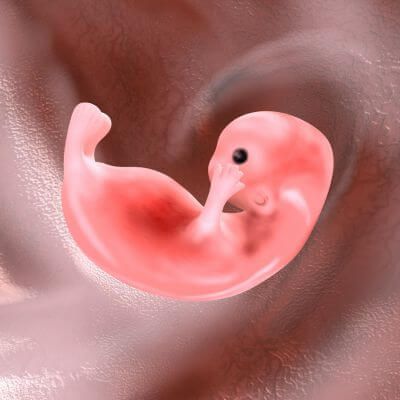
As Christians, we find our answers within the teachings of the Holy Bible and theological traditions, which offer profound insights into the soul's origin, journey, and the burning questions around its existence.
In Christianity, the human soul is understood as an immaterial part of a person that exists beyond physical death. The soul is seen as the essence of who we are, our innermost being, and it is what makes us uniquely human.

The Bible teaches that we receive our souls at the moment of conception. Jeremiah 1:5 reads: "Before I formed you in the womb, I knew you." This verse clearly highlights that God recognizes us as individual souls even before our physical formation.
The purpose of the human soul is to glorify God (Isaiah 43:7). This means that we should use our souls to seek after Him and live according to His will. As human beings, our souls also play an important role in our relationship with God; they enable us to experience His love and grace in a personal way (Romans 5:5).
When Does the Soul Enter the Body?
Christian beliefs about when the soul enters the body vary depending on which denomination you follow. Some believe that it enters at conception while others believe that it enters at birth or even later in life.

There are historically three schools of thought regarding when the soul enters the body in Christian theology: Pre-existence, Creationism, and Traducianism. Please note that the doctrine of when the soul enters the body varies greatly among different Christian traditions and theologians, and there isn't a universally agreed-upon perspective.
Pre-existence
This is the belief that souls exist before the physical body is formed. The human soul, in this view, is eternal and is placed into the body at some point during conception or gestation.
"The Bible says nothing about the pre-existence of souls because this is a man-made idea with no basis in truth. The Bible makes it clear that every human being is a unique creation of God (Genesis 2:7; Zechariah 12:1; Jeremiah 1:5). Each unique human soul begins at conception (Psalm 139:13–16; Isaiah 44:24) and will continue forever because we are created as eternal beings (Genesis 9:6; Isaiah 40:28; Matthew 25:46)." See GotQuestions.org, "What does the Bible say about the pre-existence of souls?" for further discussion regarding what the Bible says about the pre-existence of souls.
Pre-existence was a belief held by some early Church fathers like Origen, but it was later condemned as heretical at the Fifth Ecumenical Council in 553. (It's not a widely held view in Christian theology today.)
According to our sacred Scripture, Jesus Christ is the only baby who existed before His birth. This belief is based on verses from John 1:1, 17:5, and Colossians 1:17, which teach that Jesus Christ, as God, existed with the Father since the beginning. "So from Mary's exotic seed there began to form a soul and body unscarred by the history of fallen man." The Birth" by Gene Edwards.
Creationism
(This is theological, not to be confused with Creationism in the context of Genesis 1:1.) This is the belief that God supernaturally creates each soul individually ex nihilo at the moment of conception or at some point before birth. This view is held by many Roman Catholics and some Protestants. It asserts that while the body is transmitted through the parents, the soul is a direct creation of God, hence preserving its innate purity.

Traducianism
Traducianism is the belief that the soul is propagated along with the body in the process of generation—that is, the soul of a child is derived from the souls of the parents. This belief is more commonly held among certain Protestant denominations. Advocates of Traducianism argue that it better accounts for the transmission of original sin and the inherent sinfulness of humanity.
Gordon H. Clark, a Calvinist philosopher and theologian, argued for Traducianism. He reasoned that since man is said to be made in God's image (Genesis 1:27), and since the "image of God" refers to man in his entirety (both physical body and soul), it follows that both the physical body and the soul are propagated by the parents. This perspective aligns with his overall emphasis on the logical and orderly nature of God's creation.
The concept has roots in early Christian thought. Tertullian (160-220 AD), an early Church father, is often cited as an early advocate of a form of Traducianism, although his views were much more complex than our simple blog on the human soul.
"According to Tertullian, God infused Adam, the first man, with a soul. Thereafter, souls passed through natural lineage to Adam's descendants. When new life is created at the moment of conception, this life includes a living soul." Gic Serry "Traducianism: The Doctrine of the Soul as Genetic".
Here is another quote from a well known and loved theologian Gene Edwards from The Chronicles of Christ: "The Lord watched as the glowing sculpture trembled in its change from humus to human, from soil to soul." The Birth by Gene Edwards
Here's an interesting note from Wikipedia regarding the Southern Baptist Convention regarding the human soul:
"The Southern Baptist Convention teaches that ensoulment occurs at conception. Resolution 7, which was adopted by the Southern Baptist Convention in 1999, declared that 'The Bible teaches that human beings are made in the image and likeness of God (Genesis 1:27, 9:6) and protectable human life begins at fertilization.' " Wikipedia https://en.wikipedia.org › wiki › Ensoulment
Both the Traducianist and Creationist views agree that the human soul is not present before conception, which is supported by biblical teachings. It is unclear whether God creates a new soul at conception or if the soul is reproduced through the reproductive process, but either way, God is responsible for the creation of every human soul.

How Does Sin Affect The Human Soul?
The most significant effect of sin on the soul is that it separates individuals from God. Christianity teaches that God is holy and just, and sin is a violation of His law. As a result, sin creates a barrier between humans and God. (Isaiah 59:2)
This is seen in the narrative of Adam and Eve in Genesis when the Lord God formed man and where their disobedience (sin) leads to their expulsion from Eden and separation from direct communion with God.
It can cause human spirit blindness which prevents us from seeing things clearly or recognizing truth (2 Corinthians 4:4). It can also lead to feelings of guilt and shame which can weigh heavily on our hearts (Psalm 32:3-4). Finally, sin can damage relationships between people which can leave deep emotional wounds in its wake (James 4:1-2).

What Happens To The Soul After Death?
"The Bible refers to death as a time when a person was “gathered to his people” (Deuteronomy 32:50; Numbers 20:24). This indicates that, at death, a person’s soul leaves his body and joins those who have gone before him. In Jesus’ parable of the rich man and Lazarus (Luke 16:19–31), the soul of Lazarus departed to the “bosom of Abraham” (verse 22). The soul of the rich man who loved the material world was in torment (verse 23). They each received the consequences of their life’s choices (verse 25). At the resurrection, we will be reunited with our original bodies in glorified form (1 Corinthians 15:42; Philippians 3:21)." quoted from GotQuestions.org
After death, Christians believe that their spiritual soul will go either to Heaven or Hell depending on how they lived their lives here on Earth (Matthew 25:46). Those who accepted Jesus Christ as their Savior will go directly to Heaven where they will enjoy eternal life with Him (John 3:16). Those who rejected Him will go to Hell where they will suffer for eternity (Revelation 20:15).
Most Christians will agree that once the soul does enter our human body, it remains with us until death when it departs from our bodies (Ecclesiastes 12:7).

What is the human soul?
In the Christian tradition, the soul is understood as the immaterial, spiritual component of a person that is created by God, bearing His image and designed for eternal existence.
What is the difference between the soul and the human spirit?
From a Christian point of view, the soul is considered the essence of a person's being and encompasses their mind, emotions, and will, while the spirit is seen as the part of a person that connects with the Holy Spirit and receives spiritual revelation. See our article link below regarding this question.
Where does the soul reside in the body?
The soul is generally considered to pervade the whole human body, rather than being confined to a specific physical location.
Can the soul be damaged or corrupted?
According to Christian beliefs, the soul can be impacted by sin, creating a spiritual separation from God that requires reconciliation through Jesus Christ's redemption.
Can the soul evolve or grow?
Within Christian doctrine, the soul undergoes sanctification, a process of spiritual growth and maturation that begins when one becomes a believer in Christ and continues throughout their life as a living being.

Concluding Thoughts
While we are mere human beings, in the quiet corners of our hearts, where self meets spirit, we all yearn for a deeper, richer experience of life. This is the soul's whisper, a divine echo that encourages us to step into the grand adventure of self-discovery and spiritual growth. Let us remember that this journey inward is not a solitary endeavor but a path we walk hand-in-hand with the Divine Holy Spirit.
So, dear friends, I invite you to take a moment each day to listen to that Holy Spirit whisper, to seek understanding, and to explore the depths of your own soul. You may be surprised by the extraordinary treasures that lie within, waiting to be uncovered. As we cultivate these spiritual truths, we open ourselves up to a life of greater meaning, purpose, and fulfillment.
Sources
- The NIV Bible
- Gic Serry, "Traducianism: The Doctrine of the Soul as Genetic"
- Bible.org, "Origin of the Soul"
- Gordon H. Clark, The Trinity Review, "Traducianism"
- https://www.gotquestions.org., "How are human souls created?"
- https://www.gotquestions.org., "What does the Bible say about the pre-existence of souls?"
Thank you for visiting our Christian blog, and we look forward to sharing our passion for Christian theology and literature with you in future articles! If you are a subscriber, we welcome your comments.









Member discussion